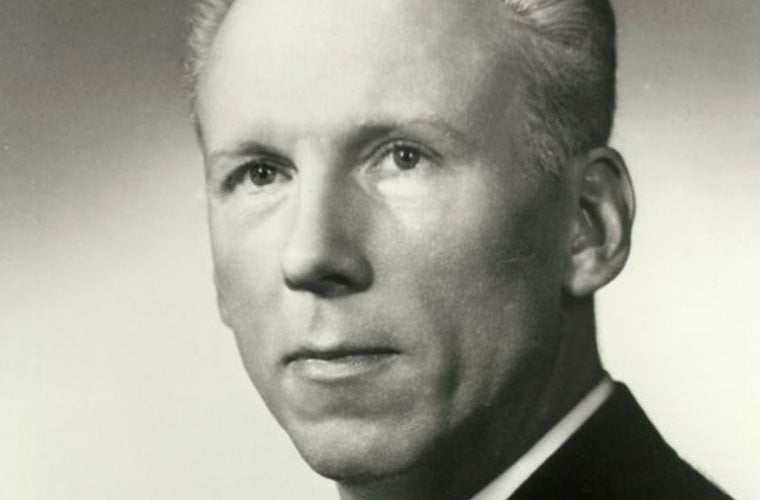
Leroy Anderson
1908 - 1975
Biography
The music of Leroy Anderson is firmly entrenched in American popular culture. A composer of distinctive and delightful miniatures, he wrote nearly all his pieces originally for orchestra and then transcribed most of them himself for band and often for other groups of instruments as well. His music is so catchy, lyrics were sometimes added to his music after the pieces were written.
Many people consider Anderson to be one of America’s four greatest 20th century composers of instrumental music, alongside George Gershwin, Aaron Copland, and Charles Ives.
Leroy Anderson was born on June 29, 1908 in Cambridge, Massachusetts, and fell in love with music at a very young age. His musical gifts were so great that in 1919 (at age 11) he began piano and music studies at the New England Conservatory of Music. In 1925 he composed, orchestrated, and conducted the Cambridge High and Latin School orchestra in the class song for his graduation. He was in high school when his father bought him a trombone so that he could play in the front row of the Harvard University Band where he would be going to college.
After college, Anderson became Director of the Harvard University Band and wrote numerous clever arrangements for the band that brought him to the attention of Arthur Fiedler, Director of the Boston Pops Orchestra. His first arrangement for Fiedler in 1936 was a medley of Harvard songs called Harvard Fantasy. In 1938 the Boston Pops performed his first original composition for orchestra, Jazz Pizzicato. It was an immediate hit, and Fiedler encouraged him to write more original compositions for the orchestra, many of which are now famous and played by orchestras across the globe.
In the early 1950’s, CBS-TV chose The Syncopated Clock as the theme for its new program “The Late Show.” CBS used it for more than 25 years. Plink, Plank, Plunk! was known to many in the 1950’s as the theme for the TV game show “I’ve Got a Secret”, and The Typewriter has become a favorite for a variety of radio news productions.
Anderson received a star on the Hollywood Walk of Fame in 1976 and was elected posthumously to the Songwriters Hall of Fame in 1988. His music is frequently used to entertain visiting dignitaries at the White House as well as to greet U.S. Presidents when visiting foreign countries.